Affiliate links on Android Authority may earn us a commission. Learn more.
iPhone 12 series comparison: Which one should you buy?
Published onFebruary 1, 2020
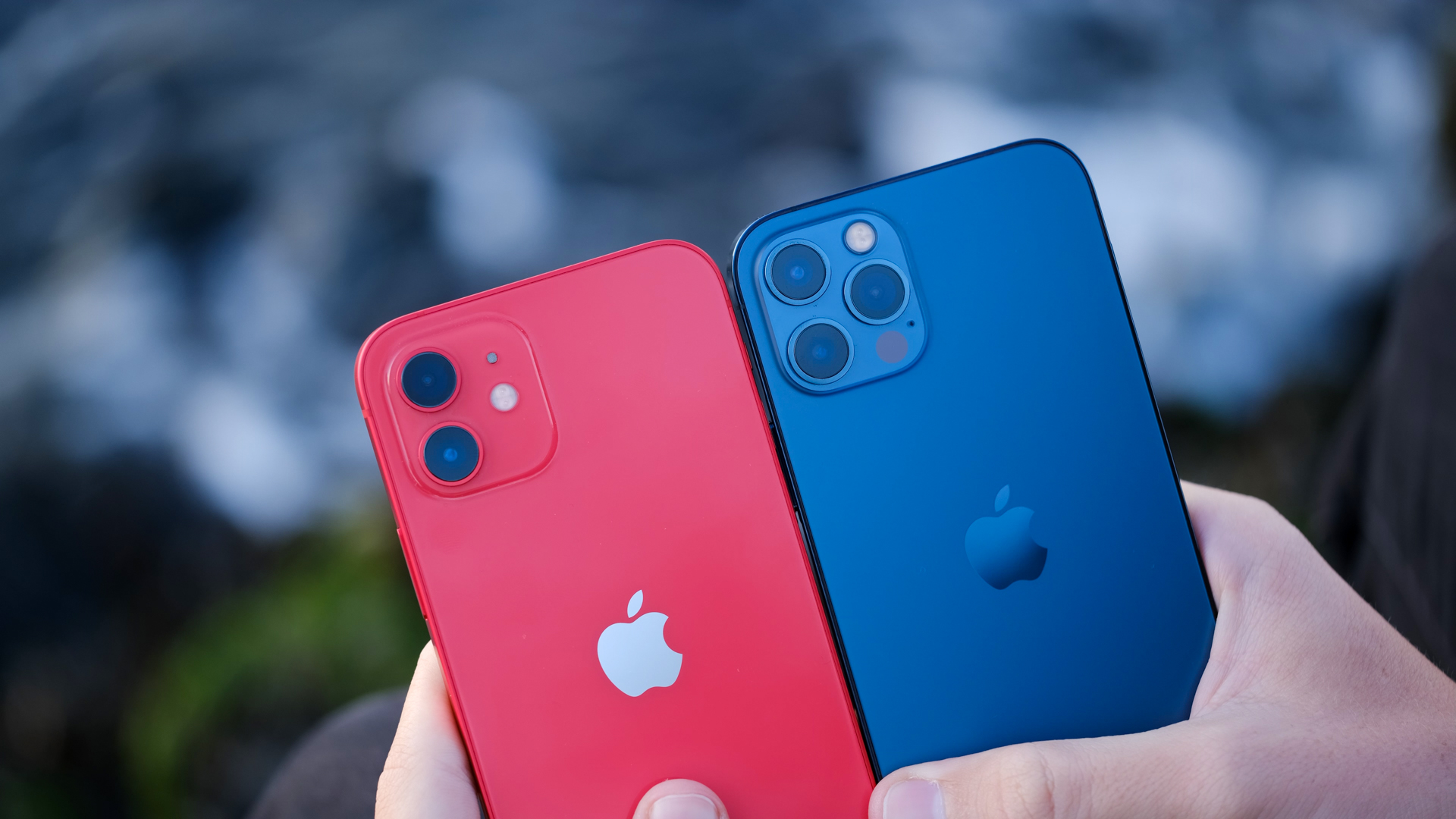
Apple went all out with its big iPhone 12 series in 2020. The company released four different iPhone 12 models, ranging from a small version to the largest iPhone ever. To help you choose which one is right for you, we put together this Apple iPhone 12 series comparison.
With four different versions, you’re sure to find a model that’s good for you. If you want to learn even more about Apple’s latest phones, click the link below.
Read more: Everything you need to know about the iPhone 12 series
iPhone 12 and iPhone 12 Mini specs
| iPhone 12 Mini | iPhone 12 | |
|---|---|---|
Display | iPhone 12 Mini 5.4-inch Super Retina XDR OLED 2,340 x 1,080 resolution HDR, True Tone Wide color (P3) 2,000,000:1 contrast ratio 625 nits max brightness (typical); 1200 nits max brightness (HDR) Ceramic Shield front | iPhone 12 6.1-inch Super Retina XDR OLED 2,532 x 1,170 resolution HDR, True Tone Wide color (P3) 2,000,000:1 contrast ratio 625 nits max brightness (typical); 1200 nits max brightness (HDR) Ceramic Shield front |
Processor | iPhone 12 Mini Apple A14 Bionic | iPhone 12 Apple A14 Bionic |
Storage | iPhone 12 Mini 64 / 128 / 256GB | iPhone 12 64 / 128 / 256GB |
Battery | iPhone 12 Mini Qi wireless charging up to 7.5W Up to 50% charge in around 30 minutes with 20W adapter or higher (sold separately) MagSafe: Wireless charging up to 15W Magnet array Alignment magnet Accessory Identification NFC Magnetometer | iPhone 12 Qi wireless charging up to 7.5W Up to 50% charge in around 30 minutes with 20W adapter or higher (sold separately) MagSafe: Wireless charging up to 15W Magnet array Alignment magnet Accessory Identification NFC Magnetometer |
Cameras | iPhone 12 Mini Rear: -Wide-angle 12MP, ƒ/1.6, OIS, 7-element lens -Ultra-wide 12MP, ƒ/2.4, 120° field of view, 5-element lens, lens correction 2x optical zoom out, digital zoom up to 5x, Night Mode, Deep Fusion, Smart HDR 3 Video: HDR video with Dolby Vision up to 30fps 4K video at 24fps, 30fps, or 60fps 1080p HD video at 30fps or 60fps 720p HD video at 30fps OIS for video (Wide) 2x optical zoom out, digital zoom up to 3x Front: -TrueDepth 12MP, ƒ/2.2 Night Mode, Deep Fusion, Smart HDR 3 | iPhone 12 Rear: -Wide-angle 12MP, ƒ/1.6, OIS, 7-element lens -Ultra-wide 12MP, ƒ/2.4, 120° field of view, 5-element lens, lens correction 2x optical zoom out, digital zoom up to 5x, Night Mode, Deep Fusion, Smart HDR 3 Video: HDR video with Dolby Vision up to 30fps 4K video at 24fps, 30fps, or 60fps 1080p HD video at 30fps or 60fps 720p HD video at 30fps OIS for video (Wide) 2x optical zoom out, digital zoom up to 3x Front: -TrueDepth 12MP, ƒ/2.2 Night Mode, Deep Fusion, Smart HDR 3 |
Connectivity | iPhone 12 Mini 5G (sub‑6GHz and mmWave) Gigabit LTE with 4x4 MIMO and LAA Wi‑Fi 6 (802.11ax) with 2x2 MIMO Bluetooth 5 Ultra Wideband chip for spatial awareness NFC Express Cards with power reserve GPS, GLONASS, Galileo, QZSS, and BeiDou Digital compass Wi‑Fi Cellular iBeacon microlocation | iPhone 12 5G (sub‑6GHz and mmWave) Gigabit LTE with 4x4 MIMO and LAA Wi‑Fi 6 (802.11ax) with 2x2 MIMO Bluetooth 5 Ultra Wideband chip for spatial awareness NFC Express Cards with power reserve GPS, GLONASS, Galileo, QZSS, and BeiDou Digital compass Wi‑Fi Cellular iBeacon microlocation |
Sensors | iPhone 12 Mini Face ID Barometer Three‑axis gyro Accelerometer Proximity sensor Ambient light sensor | iPhone 12 Face ID Barometer Three‑axis gyro Accelerometer Proximity sensor Ambient light sensor |
Software | iPhone 12 Mini iOS 14 | iPhone 12 iOS 14 |
Durability | iPhone 12 Mini IP68 | iPhone 12 IP68 |
Dimensions and weight | iPhone 12 Mini 131.5 x 64.2 x 7.4mm 135g | iPhone 12 146.7 x 71.5 x 7.4mm 164g |
Colors | iPhone 12 Mini Black, White, Product Red, Green, Blue | iPhone 12 Black, White, Product Red, Green, Blue |
In the box | iPhone 12 Mini iPhone USB‑C to Lightning cable Documentation | iPhone 12 iPhone USB‑C to Lightning cable Documentation |
iPhone 12 Pro and iPhone 12 Pro Max specs
| iPhone 12 Pro | iPhone 12 Pro Max | |
|---|---|---|
Display | iPhone 12 Pro 6.1-inch Super Retina XDR OLED 2,532 x 1,170 resolution HDR, True Tone Wide color (P3) 2,000,000:1 contrast ratio 800 nits max brightness (typical); 1200 nits max brightness (HDR) Ceramic Shield front | iPhone 12 Pro Max 6.7-inch Super Retina XDR OLED 2,778 x 1,284 resolution HDR, True Tone Wide color (P3) 2,000,000:1 contrast ratio 800 nits max brightness (typical); 1200 nits max brightness (HDR) Ceramic Shield front |
Processor | iPhone 12 Pro Apple A14 Bionic | iPhone 12 Pro Max Apple A14 Bionic |
Storage | iPhone 12 Pro 128 / 256 / 512GB | iPhone 12 Pro Max 128 / 256 / 512GB |
Battery | iPhone 12 Pro Qi wireless charging up to 7.5W Up to 50% charge in around 30 minutes with 20W adapter or higher (sold separately) MagSafe: Wireless charging up to 15W Magnet array Alignment magnet Accessory Identification NFC Magnetometer | iPhone 12 Pro Max Qi wireless charging up to 7.5W Up to 50% charge in around 30 minutes with 20W adapter or higher (sold separately) MagSafe: Wireless charging up to 15W Magnet array Alignment magnet Accessory Identification NFC Magnetometer |
Cameras | iPhone 12 Pro Rear: -Wide-angle 12MP, ƒ/1.6, dual OIS, 7-element lens, 100% Focus Pixels, Night Mode -Ultra-wide 12MP, ƒ/2.4, 120° field of view, 5-element lens, lens correction, Night Mode -Telephoto 12MP, ƒ/2.0, dual OIS, 6-element lens 2x optical zoom in, 2x optical zoom out, 4x optical zoom range, digital zoom up to 10x, Deep Fusion, Smart HDR 3, Apple ProRAW Video: HDR video with Dolby Vision up to 60fps 4K video at 24fps, 30fps, or 60fps 1080p HD video at 30fps or 60fps 720p HD video at 30fps OIS for video (Wide) 2x optical zoom in, 2x optical zoom out; 4x optical zoom range, digital zoom up to 6x Front: -TrueDepth 12MP, ƒ/2.2 Night Mode, Deep Fusion, Smart HDR 3 | iPhone 12 Pro Max Rear: -Wide-angle 12MP, ƒ/1.6, dual OIS, sensor-shift OIS, 7-element lens, 100% Focus Pixels, Night Mode -Ultra-wide 12MP, ƒ/2.4, 120° field of view, 5-element lens, lens correction, Night Mode -Telephoto 12MP, ƒ/2.2, dual OIS, 6-element lens 2.5x optical zoom in, 2x optical zoom out, 5x optical zoom range, digital zoom up to 12x, Deep Fusion, Smart HDR 3, Apple ProRAW Video: HDR video with Dolby Vision up to 30fps 4K video at 24fps, 30fps, or 60fps 1080p HD video at 30fps or 60fps 720p HD video at 30fps OIS for video (Wide) 2.5x optical zoom in, 2x optical zoom out, 5x optical zoom range, digital zoom up to 7x Front: -TrueDepth 12MP, ƒ/2.2 Night Mode, Deep Fusion, Smart HDR 3 |
Connectivity | iPhone 12 Pro 5G (sub‑6GHz and mmWave) Gigabit LTE with 4x4 MIMO and LAA Wi‑Fi 6 (802.11ax) with 2x2 MIMO Bluetooth 5 Ultra Wideband chip for spatial awareness NFC Express Cards with power reserve GPS, GLONASS, Galileo, QZSS, and BeiDou Digital compass Wi‑Fi Cellular iBeacon microlocation | iPhone 12 Pro Max 5G (sub‑6GHz and mmWave) Gigabit LTE with 4x4 MIMO and LAA Wi‑Fi 6 (802.11ax) with 2x2 MIMO Bluetooth 5 Ultra Wideband chip for spatial awareness NFC Express Cards with power reserve GPS, GLONASS, Galileo, QZSS, and BeiDou Digital compass Wi‑Fi Cellular iBeacon microlocation |
Sensors | iPhone 12 Pro Face ID LiDAR Scanner Barometer Three‑axis gyro Accelerometer Proximity sensor Ambient light sensor | iPhone 12 Pro Max Face ID LiDAR Scanner Barometer Three‑axis gyro Accelerometer Proximity sensor Ambient light sensor |
Software | iPhone 12 Pro iOS 14 | iPhone 12 Pro Max iOS 14 |
Durability | iPhone 12 Pro IP68 | iPhone 12 Pro Max IP68 |
Dimensions and weight | iPhone 12 Pro 146.7 x 71.5 x 7.4mm 189g | iPhone 12 Pro Max 160.8 x 78.1 x 7.4mm 228g |
Colors | iPhone 12 Pro Silver, Graphite, Gold, Pacific Blue | iPhone 12 Pro Max Silver, Graphite, Gold, Pacific Blue |
In the box | iPhone 12 Pro iPhone USB‑C to Lightning cable Documentation | iPhone 12 Pro Max iPhone USB‑C to Lightning cable Documentation |
Design
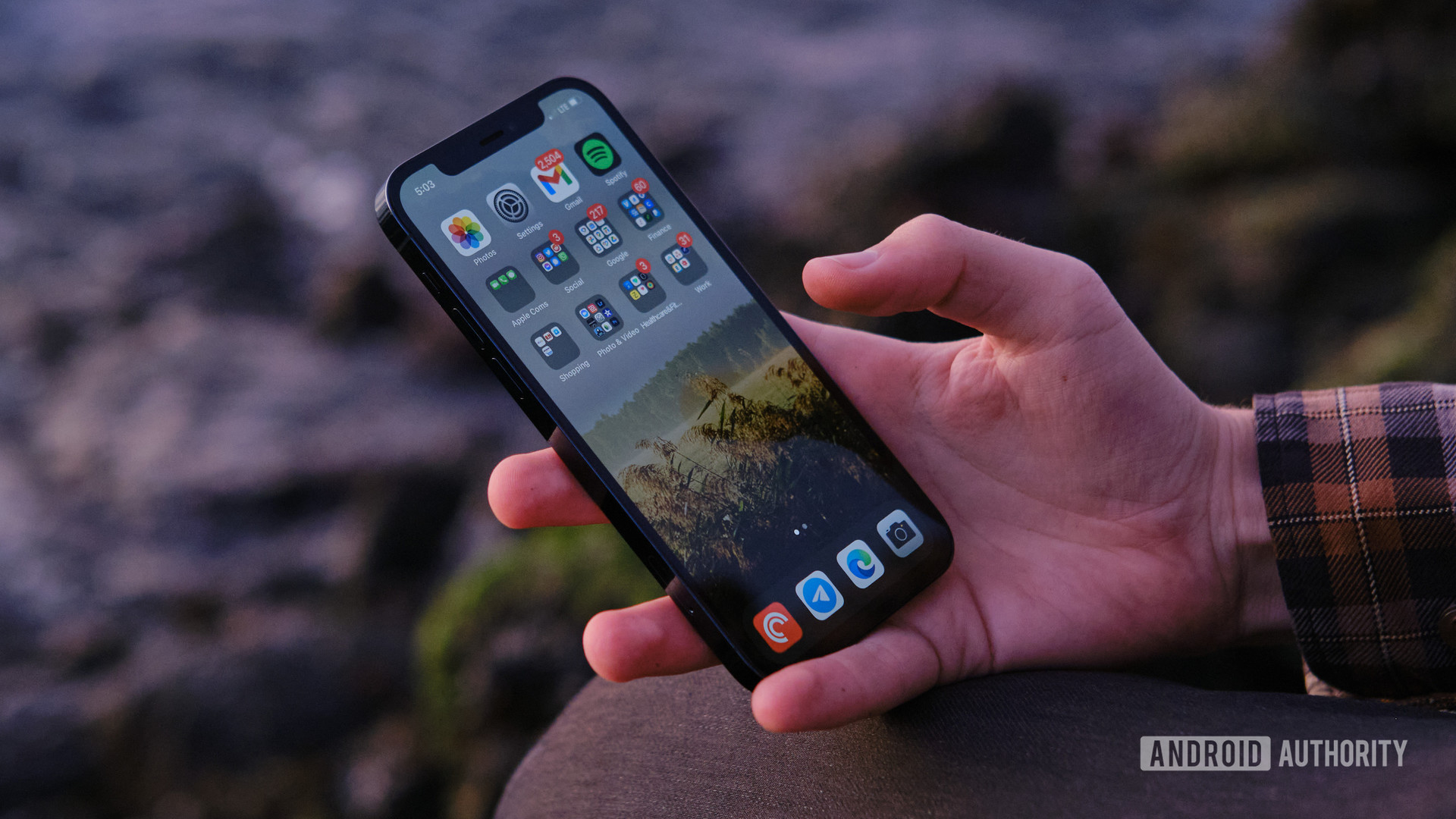
All iPhone 12 models have a new type of glass cover for their displays made in conjunction with Corning. It’s called Ceramic Shield which uses a process that adds nano-ceramic crystals inside the glass. This is supposed to offer better protection against drops compared to previous iPhone models. The iPhone 12 and iPhone 12 Mini both have an aluminum chassis, while the iPhone 12 Pro and iPhone 12 Max both have a stainless steel chassis.
Read more: Apple iPhone 12 review: Awkwardly standard
The iPhone 12 Mini is a new size for the iPhone series. It’s actually smaller than the iPhone 8, which had a tiny 4.7-inch display. However, since the Mini has smaller bezels on the front, the overall footprint is smaller. The iPhone 12 Mini has a bigger display than the older iPhone, though, at 5.4 inches.
The standard iPhone 12 and the iPhone 12 Pro have the same 6.1-inch display, while the iPhone 12 Pro Max is the biggest iPhone ever made with a 6.7-inch display. All four still have a rather large notch at the top of the display for their front-facing cameras and face unlock sensors.
All four phones also sport OLED screens, making for quite a change from previous releases. Prior to this, the cheapest iPhone in a series always offered LCD screens instead, such as the iPhone 11 and iPhone XR. This means you can expect deeper blacks and reduced power consumption when using dark backgrounds.
Compare: Samsung Galaxy S21 vs iPhone 12: Battle of the giants
The iPhone 12 Mini and iPhone 12 both come in Black, White, Product Red, Green, and Blue colors. The iPhone 12 Pro and iPhone 12 Pro Max come in Silver, Graphite, Gold, and Pacific Blue colors. All are rated IP68 for water and dust resistance, and Apple says they can keep working even if they are submerged in water up to six meters for up to 30 minutes.
Hardware
The iPhone 12 series are the first phones to support the growing number of 5G networks. In this case, the phones support the millimeter wave (mmWave) 5G networks in addition to the more common sub-6Ghz networks.
Apple is also quietly admitting that 5G connectivity consumes more juice than LTE with the implementation of a Smart Data Mode. This will dynamically switch between LTE and 5G when needed in order to save power. For example, the firm says background updates will take place over LTE while video downloads will be routed over 5G.
The iPhone 12 series all use Apple’s in-house A14 Bionic processor. It’s been made with 5nm manufacturing and has a six-core CPU and a four-core GPU. It also has a neural engine chip with 16 cores for better machine learning performance. This makes it the most powerful iPhone ever released, and probably the most powerful smartphone there is.
Read more: Apple A14 Bionic test: Is iPhone silicon still more powerful than Android SoCs?
The new models also use a throwback feature called MagSafe. It’s used for a new class of accessories that uses magnets that attach to the rear of the iPhone 12 models. That means accessories like cases, wireless chargers, and more all connect magnetically to the back of the iPhone 12 series.
The new Apple wireless chargers can boost wireless charging by up to 15W. The phones still support the more widely used Qi wireless charging standard. However, they only charge Phone 12 models up to 7.5W.
The iPhone 12 Mini and iPhone 12 will have 64, 128, and 256GB storage options, while the iPhone 12 Pro and iPhone 12 Max will be sold with 128, 256, and 512GB storage versions.
Cameras
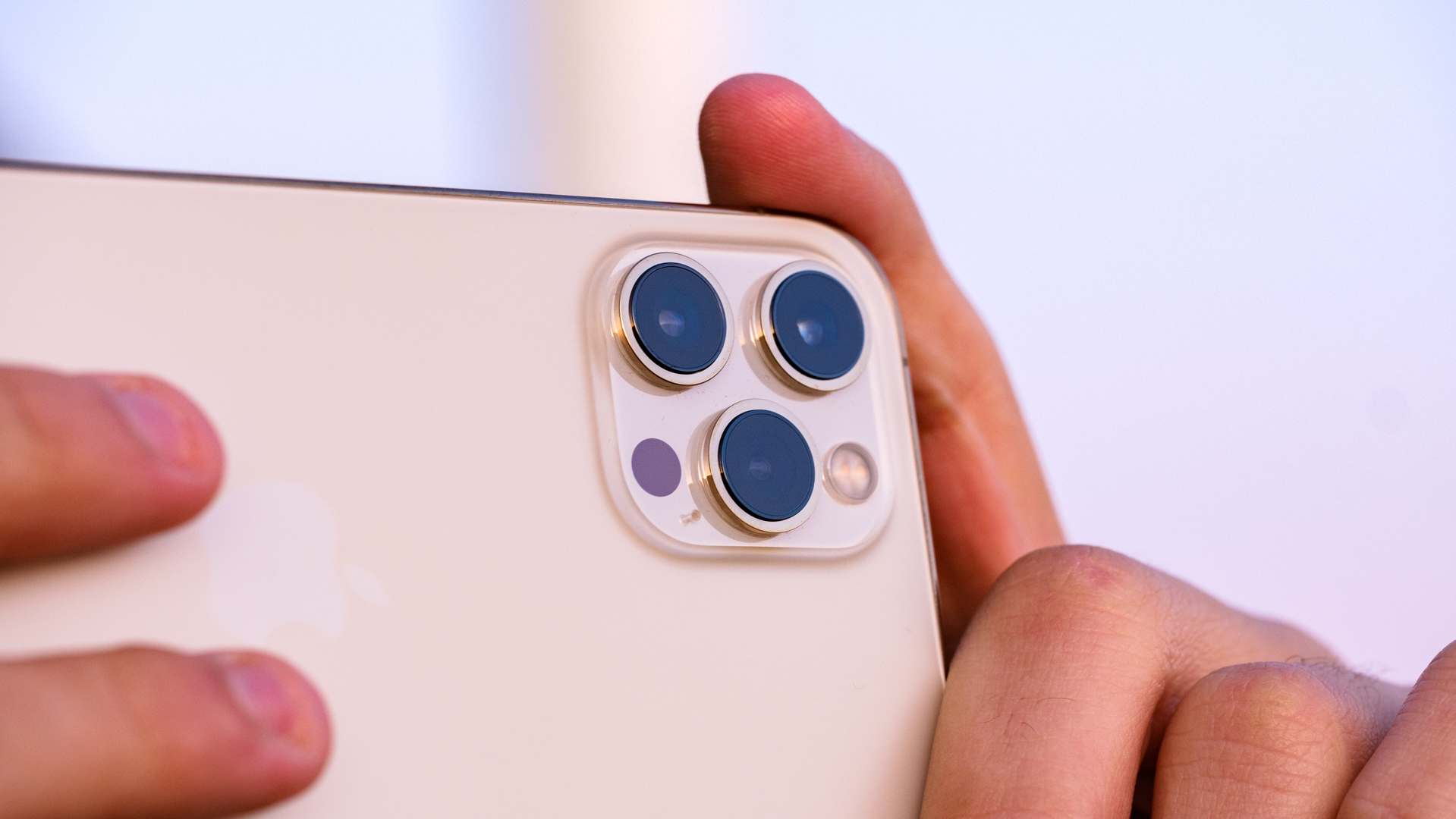
The iPhone 12 Mini and iPhone include two rear cameras. One is a 12MP wide sensor, while the other is a 12MP ultra-wide camera. The iPhone 12 Pro and Pro Max add a third 12MP telephoto rear camera. The Pro models also throw in a LiDAR scanner in the back, which is used to record pixel depth information. This is supposed to reduce capture time for images and video clips, along with improving AR experiences. All four iPhone 12 models include a 12MP front-facing camera.
The iPhone 12 Pro Max is clearly the most capable photography platform of the lot though. It offers 2.5x zoom on the telephoto camera compared to 2x zoom on the Pro variant. Furthermore, the Max model also gains “sensor-shift OIS” for better stabilization than traditional optical image stabilization seen on the iPhone 12 Pro. Finally, the Max model’s main camera gains much bigger pixels for better low-light capabilities (1.7 micron pixels versus 1.4 micron pixels on the Pro).
Read also: iPhone 12 Pro Max vs iPhone 12 Pro camera shootout: Is bigger always better?
In addition, all the new iPhone 12 models support HDR and Dolby Vision HDR video recording. The iPhone 12 Mini and iPhone 12 record at up to 30fps, while the iPhone 12 Pro and iPhone 12 Pro Max boost that up to 60fps. The phones will even allow users to edit their Dolby Vision HDR video clips on the phone.
Apple has also brought a few low-light tweaks to the iPhone 12 series, such as Night Mode timelapse functionality and night mode on the ultra-wide camera and selfie shooter. The firm is also delivering Night Mode portraits on the Pro series, enabled by the LiDAR sensor.
Software
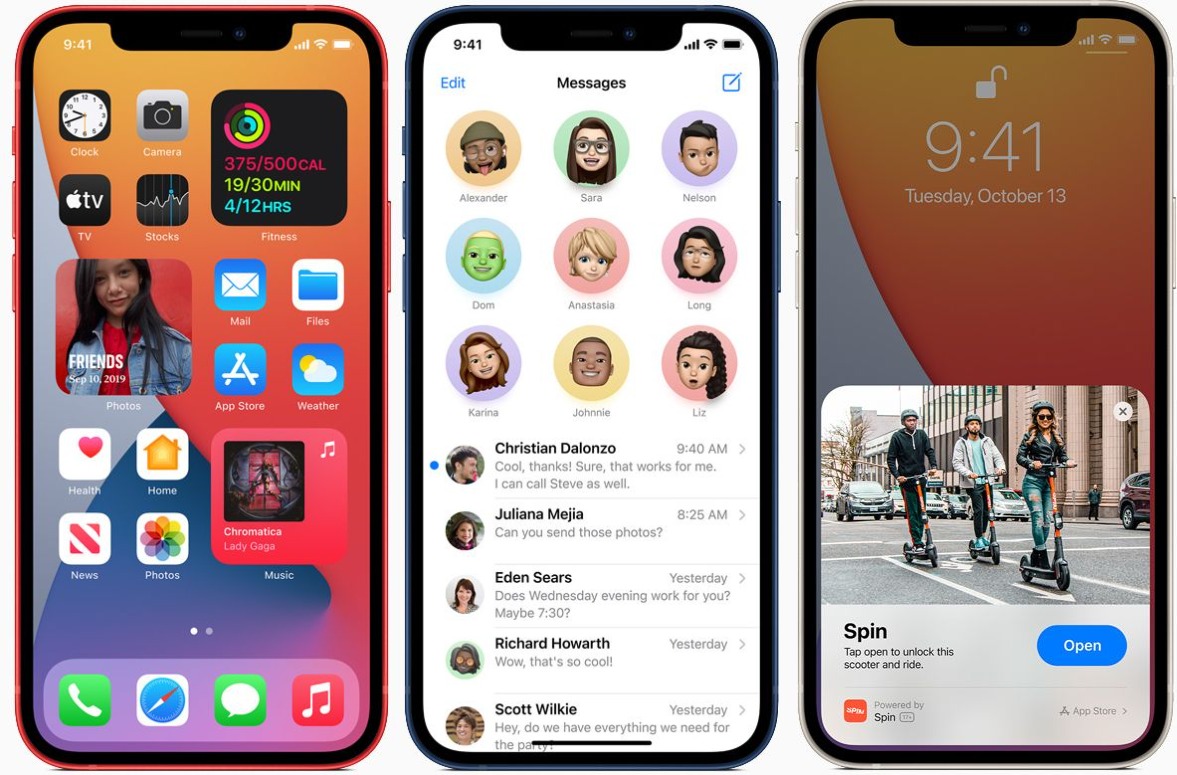
All the new iPhone models ship with iOS 14, which Apple has already released for older iPhone models. It includes new features like supporting widgets on the phone’s home screen, along with the App Library that helps to better organize a user’s phone apps. It also adds picture-in-picture support for watching videos, or conducting FaceTime calls, while continuing to use another app on the phone.
Price and release date
All the new iPhone 12 models are now available in marketplaces around the world. Pricing for the iPhone 12 Mini begins at $699 in the US, with the iPhone 12 starting at $799. The iPhone 12 Pro has a starting cost of $999, and the iPhone 12 Max Pro begins at $1,099.
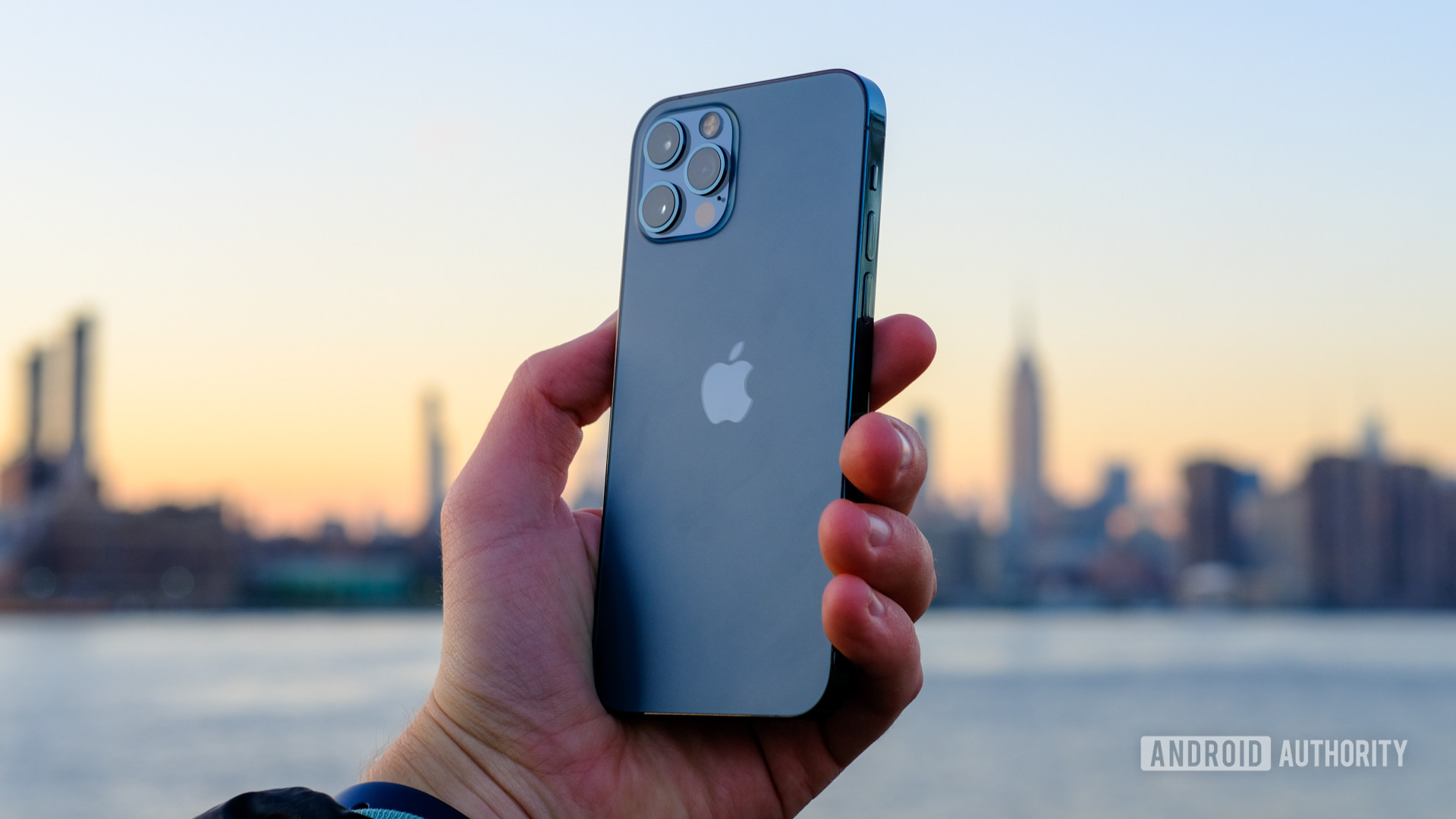
iPhone 12 series: Which one should you get?
The iPhone 12 Mini seems to be something of a niche product, made for people who simply want to get a new iPhone but don’t want to deal with the larger screen sizes that are more common today for new flagship phones. The iPhone 12 is perfect for people who just want a powerful smartphone but don’t want to pay a lot for it and can live without a few premium features.
Read more: Apple iPhone 12 second opinion review: It really does just work
If you can afford it, it’s worth swinging for at least the standard iPhone 12. It gives you all of the benefits of Apple’s latest phones except for the cameras, and even then the two rear cameras perform admirably.
The iPhone 12 Pro is for the serious mobile photographer, with its triple camera and its LiDAR scanner. Finally, the iPhone Pro Max is for the person that does not consider money to be a limitation, and also wants to have a really big screen and top-notch camera capabilities.